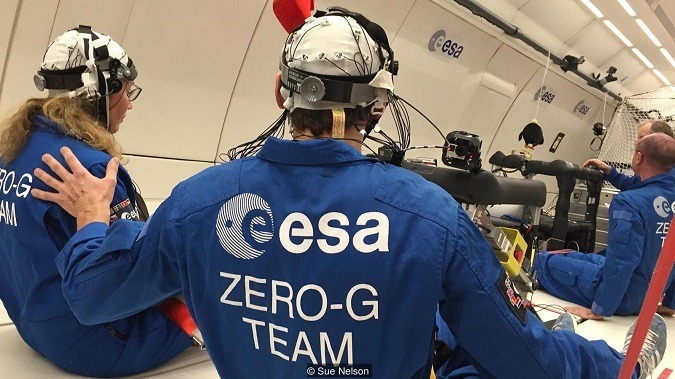 ___
___
The flight that brings space weightlessness to Earth (BBC Future):
“Five, four, three, two, one…”
Not many aircraft captains give their passengers a rocket launch-style countdown before take-off, but this is no ordinary plane. For starters, everyone on board, apart from the crew, is a scientist and has passed a full medical check – including a heart assessment. This is not a trip for nervous fliers…Klein is wearing a cap covered in electrodes to measure his brain’s activity while he and two others react to audio signals, use a keyboard, and solve a mathematical equation during the 20-second periods of microgravity. “It’s not a difficult equation but under the pressure of time it becomes a difficult cognitive performance task.”
Physical fitness is important for astronauts but so is brain fitness and there are potential effects to consider from being in microgravity and also in isolation for longer durations.
“Long-term isolation can reduce cognitive performance but it has also been shown that during microgravity cognitive performance is increased,” says Klein. “We are interested in the mechanisms behind that. Brain flow is increased in microgravity so we are looking at the link between them.”
As well as gaining a greater understanding of an astronaut’s performance in space, this knowledge has potential applications for designing better ways to help those with Alzheimer’s disease or dementia.”
News in Context
- Neuroimaging study finds significant changes in brain structure during long-duration space flight
- When flying to Mars, make sure to monitor and enhance brain function (radiation exposure can hurt performance)
- 10 neurotechnologies about to transform brain enhancement and brain health
{ All Hypnosis Feeds
via SharpBrains https://sharpbrains.com
February 12, 2018 at 09:18AM
No comments:
Post a Comment